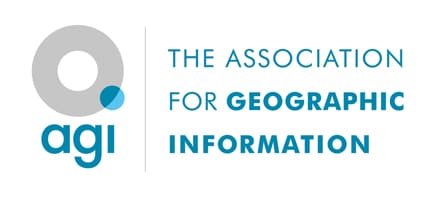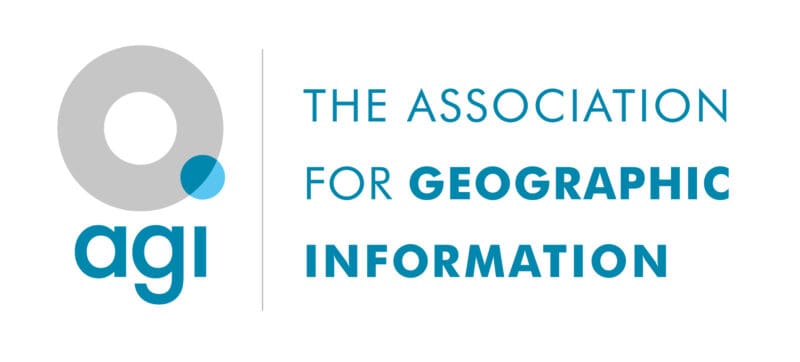Launched in the UK on 24 March 2021, the Locus Charter sets out 10 foundation principles to promote the ethical and responsible use of location data around the world. The Association for Geographic Information (AGI) and the Royal Geographical Society (with IBG) believe the introduction of the Charter provides an inflection point on the growing importance of location data in our lives, society and economies.
Together, the AGI and RGS are bringing professionals using location data together to consider: if companies in the UK were to adopt the Charter and embrace ethical location data practices, what would we individually and collectively need to change, how would we do it, and how can we enhance responsible practice in our profession?
This blog post is based on our first meeting with leading UK geospatial professionals and practitioners, convened to help guide our engagement on location data ethics in practice.
Trust
Any discussion around putting the foundational ethical principles of the Locus Charter into practice starts with trust. Public trust in the choices they have about their own location data, and also their trust in the accountability of those who produce, process, and use location data.
Global data flows expand and fragment as wider location data use and re-use increases, and consumer awareness grows. We, as practitioners, increasingly articulate the benefits of data, reassured by evidence of good practice, and crucially call out abuses of personal data – of which location data is a key part. Saying that is easy, but how can we enable this trade-off through our work?
As professionals in our various fields – whether earth observation, ground surveying, AI feature extraction, geospatial analytics and services, etc. – we too have a key role to play in engendering trust. We need to balance the public good that location data can achieve with a truthful account of our practices. We need to think carefully about what ‘good’ looks like here in the UK and how we as practitioners can meaningfully demonstrate compliance with such practice.
Through collaboration with the UK geospatial professionals and practitioners, the AGI and RGS aim to shine a light on good practice in our communities, sharing it more widely and more visibly. We aim to communicate what is and is not practicable while regulatory frameworks here in the UK are redrawn for an agile, digitally-enabled age.
Accountability and redress
Of course, location data legal regimes and views of what is harmful/not harmful are regionally and culturally different around the world. In the UK, our go-to solution is often transparent adherence to regulatory frameworks, e.g. GDPR, intellectual property rights and/or the assessment of potential or actual impacts. There are debates to be had in the UK about our collective national and devolved government mechanisms for accountability and redress, and we follow and contribute to national conversations around the National Data Strategy and the UK Geospatial Strategy to help enhance our legal and regulatory environments. We fully support the UK’s Geospatial Commission work to develop public dialogue and help us challenge our assumptions as professionals and practitioners. We need to know how people feel about their location data being used and the controls they can access to protect it, and we look forward to seeing their findings in 2022.
As professionals and practitioners, we believe there are tangible things we can do to show our understanding of ethical standards which will engender and enable trust. These can be found in our educational training, our company values, our data governance, our data sharing, the technology we use, the consumer controls we offer, and the language we use. There are trade-offs to be made with consumers, or even in curtailing some location data driven insights. But there is also a competitive market advantage in demonstrating responsible, ethical location data practice. This may be leveraged by raising the profile of the Locus Charter and the essential role of the geographic and geospatial professions.
Sharing, listening and collaboration
The Locus Charter can help us craft a journey towards greater protections, accountability, and responsible, ethically guided practice here in the UK. The AGI and RGS-IBG want to help forge that journey by bringing our communities together to collaborate on the components of responsible practice, highlighting what works well, and pointing to practical and constructive things we could be doing differently.
We have co-hosted a series of online events to explore what the principles of the Charter would mean for ethical location data practice.
We welcome your thoughts in blogs, essays, other events – please tell us what responsible ethical practice with location data means to you as a practitioner and professional, individually and within your organisation.
Please share examples from your work which highlight how you have worked to protect personal privacy and taken an ethical standpoint, the tools you have successfully deployed, or the governance systems that you have developed which take ethics into account.
We particularly welcome your thoughts on what we can do as communities of professionals, including those whose work makes use of insights from geospatial data and analytics, to call out poor practice or how we should test our ethical use commitments.
These inputs will help us gather a toolkit of practical help and support to us as location data practitioners and professionals shape how we put ethics into practice with the Locus Charter as our guide.
Get in contact with us at: info@agi.org.uk or professional@rgs.org

